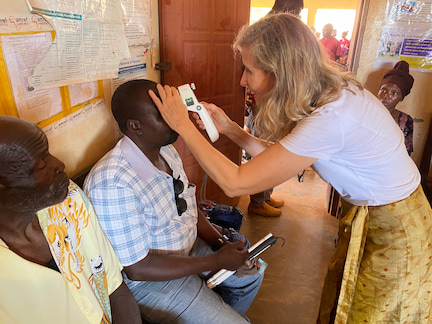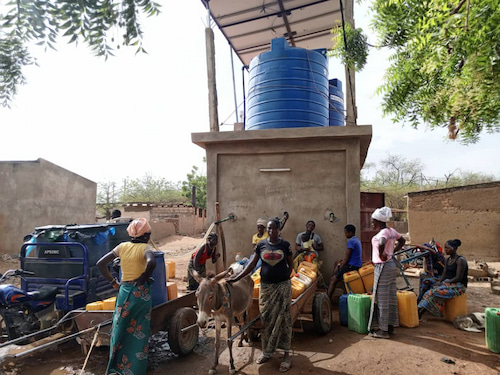The number of women claiming a space in their immediate environment, in their region, and in society in general, has increased significantly over the last decades in Africa. In countries such as Cameroon, for example, the number of women parliamentarians has increased sevenfold, from 5.561 TTP3T of seats in the late 1990s to 33.891 TTP3T in 2020 (*) . However, in other areas of education, inequality is still very high. Of those graduating in STEM (science, technology, engineering and mathematics) related careers, only 3 out of 10 are women.
In this context of inequality, the Recover Foundation calls for the inclusion of the gender dimension in all development projects, supporting local women to study and train, which will undoubtedly represent a great step forward in their empowerment.
For this reason, coinciding with the month of March, in which International Women's Day was commemorated, we would like to highlight and pay tribute to the work of the local health professionals with whom the Recover Foundation collaborates in the field, represented through the testimonies of Willimina, Bahalal Charlotte and Chatelle.
 |
Chatelle Lewe, dentist surgeon of Saint Martin de Porres in Yaoundé
"For me, the work I do is very exciting because when the patient comes to our practice, it is because they are in pain, and when they leave without pain after the visit, they usually thank us from the bottom of their heart, it is almost like a miracle for them.
In Cameroon, gender inequalities affect women in the development of their professions. Some people still believe that we are not capable of holding positions of responsibility, on the pretext that we are not "charismatic" enough, or that we are not assertive enough to be able to make decisions. But I think the opposite is true, there are many women with the potential and the skills to take on positions of responsibility, and it is high time that gender inequalities ceased, because they affect us women to a large extent in the exercise of our functions and in the development of our profession".
 |
Willimina Tatsinkou, nurse at the Protestant Hospital of Njissé
Winner of the 2nd Recover Telemedicine Foundation Award 2019-2020. Training grant in Blood Transfusion.
"Sometimes we meet patients who do not want to be treated by a woman, especially when working in a predominantly Muslim region. There are also private centres that are reluctant to hire female health workers, because they think we might get pregnant, or that we are going to be asking for leave to take care of our children and husbands.
Personally, I think this is a mistake: we nurses listen to the patient; we all have families, whom we also care for, so we know how to act when it comes to caring for others.
 |
Bahalal Charlotte Flore, midwife at the Sainte Raphaëlle Marie hospital centre
"In Cameroon, the economic situation and the lack of public health care make it difficult for pregnant women to access gynaecological check-ups. For this reason, although we make efforts to carry out awareness-raising sessions to highlight the importance of these check-ups, it is difficult to get all our patients to follow the check-up programme.
After the birth, we usually carry out a monitoring consultation in order to detect any late postpartum complications. We also take the opportunity to provide basic baby care related to hygiene and nutrition to prevent future complications, especially those related to malnutrition. It is also crucial for us midwives to be able to continue our education throughout our professional lives, so that we can pass on up-to-date information to our patients.
(*) World Bank : Share of seats held by women in national parliaments (%) | Data (bancomundial.org)














